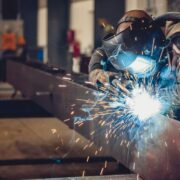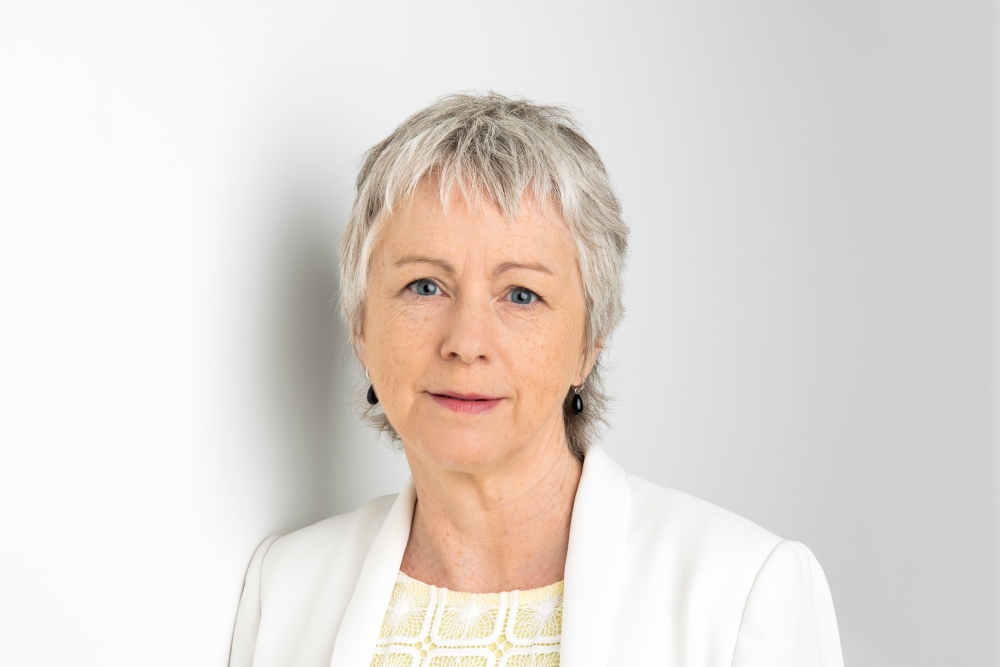Podcast Ep 173: Aine Murray, president of the France Ireland Chamber of Commerce, talks about how France is now Ireland’s nearest EU neighbour and how opportunities abound for Irish exporters.
It is a year of anniversaries on various levels. As Bank of Ireland celebrates 240 years in business, it is worth noting that this year is the 225th anniversary of General Jean Joseph Humbert’s ill-fated Expédition d’Irlande at Killala to support the 1798 rebellion, his declaration of an Irish Republic and subsequent defeat at the Battle of Ballinamuck.
The episode is just one chapter in a long and storied history between Ireland and France that is as much mercantile as it was military. Indeed, trade between the two European nations is likely to precede even Roman times.
“There are many Irish companies that are evolving and doing well in France, particularly in areas like innovation, technology, engineering and sustainability”
Sticking with the mercantile theme, I point out to Aine Murray, president of the Ireland France Chamber of Commerce that the famous 18th century economist Richard Cantillon was in fact a Kerryman, born in Tralee in the 1680s, and who coined the term “entrepreneur” in his book Essai sur la Nature du Commerce en Général in 1755.
This mercantile link, Murray believes, needs to be expanded upon in a post-Brexit Europe where Ireland’s nearest EU neighbour happns to be France.
A new port of call
“Both countries share a certain sense of curiosity, conviviality and a sense of community, which does provide that necessary spark for collaboration and innovation.
“Minister Michael McGrath recently referenced the fact that there is now in excess of €30bn of trade annually between both France and Ireland and this is growing. The number of French companies in Ireland is growing. The France Ireland Chamber of Commerce has 175 members right throughout the country, spanning start-up entrepreneurs and SMEs up to corporate right across the sectors.”
She makes a valid point. Among the various French businesses active in Ireland are Pernod-Ricard, which happens to be the largest distiller of Irish whiskey through its ownership of Irish Distillers. “Both companies are huge innovators in sustainability and decarbonisation as well as through their products. Our members include a huge range of entrepreneurs specialising in SME online solutions, greenhouse innovators, plastic manufacturing, cybersecurity, pharmaceutical engineering. Within that closest EU neighbour piece, we’ve seen direct trade routs established and all of the sectors taking off. It’s a really dynamic community and very exciting.”
The France Ireland Chamber Of Commerce (FICC) is a private, non-profit membership organisation that gathers French companies, non-French companies wishing to develop their relations with France, and businesspeople representative of French economic interests in Ireland. The FICC’s mission is to support the increase of trade between France and Ireland, and to attract potential investors to both countries.
Murray is the head of marketing, communications, corporate responsibility and bid support at Veolia Ireland & Northern Ireland, which employs 700 people across the island.
She has worked with the FICC across several roles in the Council and Executive team for the last ten years and she’s also currently deputy chair of the Climate Response Working Group, La Vie en Vert. As president of FICC, Murray’s vision is to build on the FICC’s position as a valued player and influencer in the business relationships in Ireland and France in 2023.
Veolia itself is an example of a French business that has invested in Ireland. With a heritage extending back to 1853, it works across energy, water and waste with all sizes of organisations from large manufacturers in pharmaceuticals to hospitals. It is helping hospitals like St James and the Mater to decarbonise. “We would work with pharmaceutical manufacturers, for example, to make sure that what they use in their products is as recoverable as possible so there is less waste or can be used as an alternative or fuel.”
Murray said that Irish SMEs should consider France as a gateway to the rest of the Eurozone and Europe. “I think many of us have some level of French from school and the French do appreciate you making an effort to communicate in their language. But they also love having the opportunity to practice their English too. They enjoy coming together and they enjoy working with the Irish.”
She said businesses should look to the supports from FICC as well as Enterprise Ireland. Then there is also Business France, the French equivalent of Enterprise Ireland, as well as the IDA and various embassy teams active in France. “The first step would be to get in touch with the FICC. There may be French entrepreneurs living in Ireland. There are also support schemes in place and we have recently invested in a landing space for people looking to set up as a fast-track into the Franco-Irish business community in that space.”
Irish companies making strong headway in France include Kingspan which last year won a business award from the FICC. Kingspan has been active in France since 2009 and four out of its six business divisions are active in the country. Kildare business Terra Nutritech last year was honoured with a Rising Star award from the FICC after it landed a €7.5m contract to bring its precision mineral products for animal health into France.
“There are many Irish companies that are evolving and doing well in France, particularly in areas like innovation, technology, engineering and sustainability.”
Prior to Brexit, it was a natural evolution for Irish SMEs to begin their overseas expansion in the UK. Murray urges Irish SMEs to consider France a new starting point. “Traditionally we would always looked to the English-speaking countries because we would have perceived them as easier to do business with because of the shared language. But I think also, when you’re doing business, there’s a huge importance placed on shared culture, values and business structures – which is what you have within the EU and Europe, but particularly between France and Ireland. And I don’t think there is anything holding Irish businesses back except perhaps lack of awareness.”
Logistically, the number of trade routes between Ireland and the European mainland via France have increased because of Brexit, so Murray says there’s no excuse for businesses that could export not to begin their Eurozone journey in France.
“€30bn is a fantastic number – but maybe we don’t realise the sheer number of French companies in Ireland or Irish companies in France mainly because they’re just getting on with the job.”
Murray has a point. Since Brexit, the number of continental ferry crossings has increased fourfould with around 500 trucks a day that used to travel through the UK as a landbridge are now being rerouted through French ports.
The Celtic Interconnector between France and Ireland, which is due to open in 2026, is the biggest infrastructure project between the two nations with a cost of €1.6bn. It will connect the electricity grids of the two countries allowing the export of renewable electricity from Ireland to France.
EDF Renewables is to develop two offshore floating wind energy farms in Irish waters. Neoen, a Paris-listed renewable energy company, has said it hopes to develop green energy projects in Ireland worth €1bn.
Murray stressed the opportunity that awaits Irish exporters. “Do your homework, get in contact with the agencies that are there to help as well as the embassies and delegations in various regions. There’s a huge amount of opportunity.”
Main image at top: Aine Murray, president, France-Ireland Chamber of Commerce. Background image: Photo by Alexander Kagan on Unsplash





